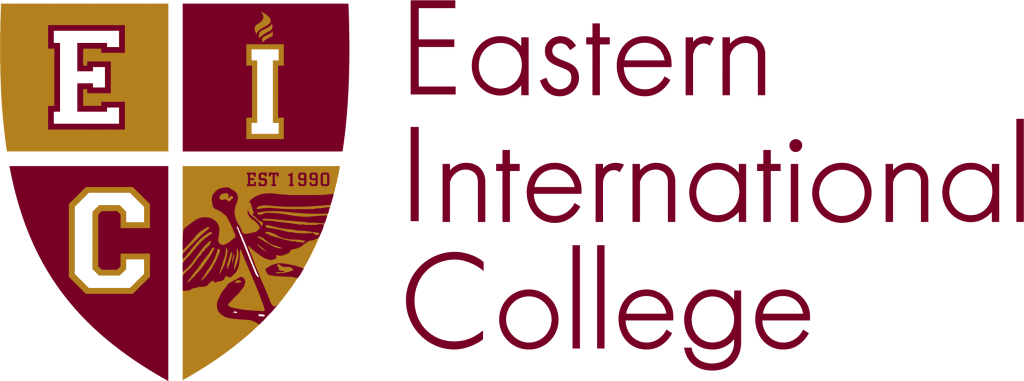General Education Mission
The mission of the General Education Department at Eastern International College is to provide our diverse student population with a general education curriculum that prepares them to acquire transferable skills that satisfy written, oral communication, quantitative and technology principles, information literacy, natural and physical sciences, social and behavioral sciences, humanities and fine arts that contribute purposely for the development of academic skills and promotion of lifelong learning
General Education Learning Outcomes
Communication Literacy: The student will be able to speak and write effectively, convey an evidence-based argument, and positively relate to, communicate with, and influence others
Information Literacy: The student will be able to retrieve information and apply media and communication technology effectively into their projects
Technology Literacy: The student will be able to responsibly and ethically use appropriate technology to access, manage, integrate, evaluate, create and communicate information to improve learning across subject areas.
Quantitative Literacy: The student will be able to utilize numerical data accurately and effectively to solve real world problems
Critical Thinking: The student will be able to reflect, analyze, and draw informed conclusions
Global Competency: The student will be able to experience and promote inclusivity and diversity in school, work, and community settings, and demonstrate cultural competency through the appreciation of art and interpersonal mediums of expression.
Scientific Reasoning: The student will be able to demonstrate systematic and logical decision-making that involves empirical observations, investigation of validity of evidences, and developing evidence-based conclusions.
Division of the General Education Curriculum
- Communication
- English Composition I (ENG 101)
- English Composition II (ENG 102)
- Interpersonal Communication (SPC 101)
- Research Design and Writing (ENG 303)
- Life Sciences
- Anatomy and Physiology I (BIO 101)
- Anatomy and Physiology II (BIO 102)
- Nutrition (NUT 101)
- Microbiology (MIC 101 or BIO 110)
- Physical Sciences
- Physics (PHY 101)
- Chemistry (CHE 101)
- Mathematics and Computer Science
- College Algebra (MAT 103)
- Statistics (MAT 204)
- Computer Skills (COM 101)
- Basic Statistics with Microsoft Excel Applications (MAT 300)
- Social Sciences
- General Psychology (PSY 101)
- Developmental Psychology (PSY 102)
- American History I (HIS 101)
- American History II (HIS 201)
- Sociology (SOC 101)
- Cultural Diversity (SOC 302)
- Global Health (HEA 402)
- Women and Health (HEA 403)
- Humanities and Fine Arts
- World Religions (REL 302)
- Art Appreciation (ART 101)
- Early American Literature (ENG 301)
- Art and Popular Culture (ART 302)
- Bioethics (PHI 401) `
